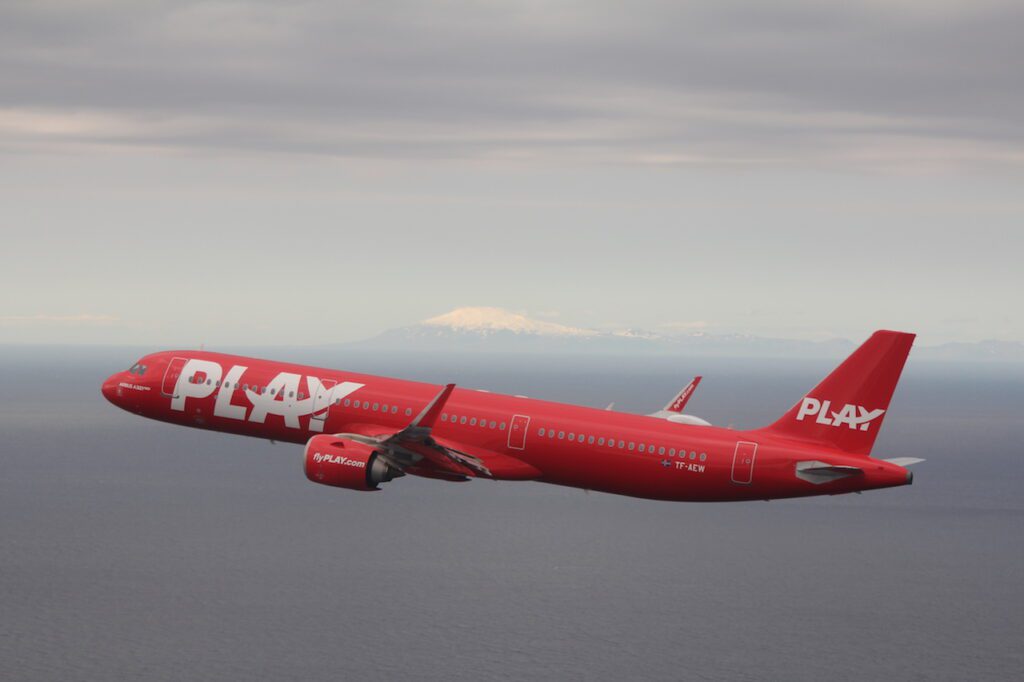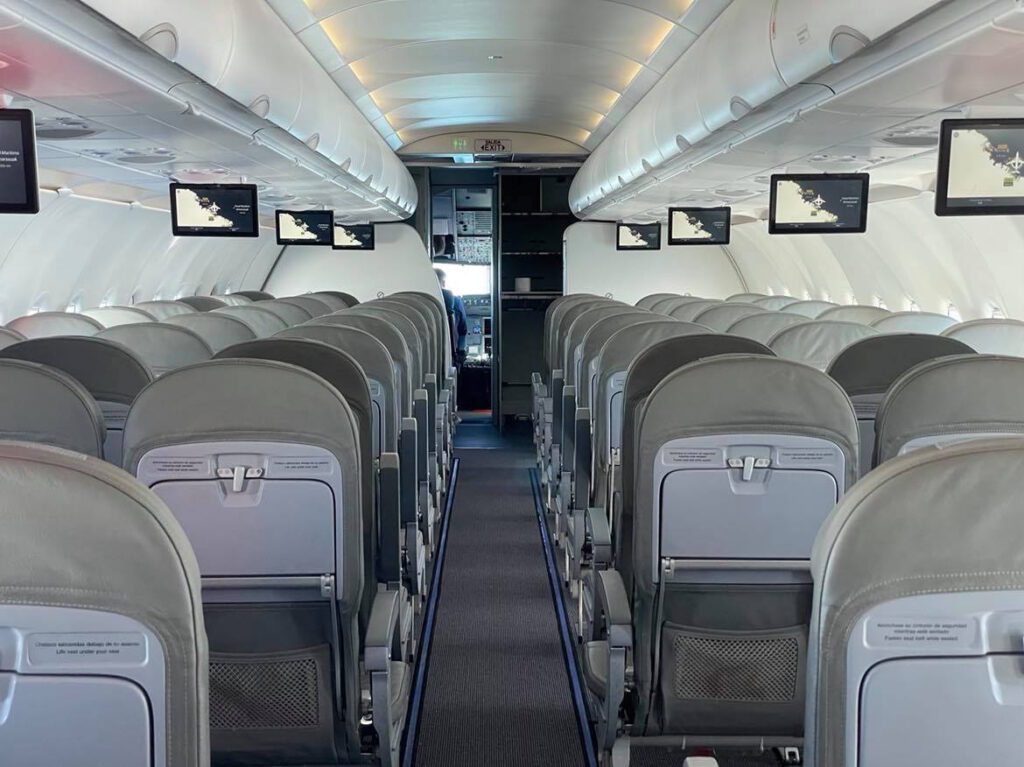PLAY CEO Talks A321 Fleet Strategy for Iceland’s New Low-Cost Transatlantic Airline


PLAY, the startup low-cost airline operating out of Iceland, has added Orlando as its fourth U.S. destination. (PLAY)
Iceland’s newest low-cost airline, PLAY, has announced the addition of Orlando International Airport as its fourth U.S. market less than a year after beginning operations out of Reykjavik. Avionics International caught up with PLAY CEO Birgir Jónsson to learn how his team plans to use a no-frills approach to operating a growing fleet of A321neo family aircraft, and whether he would ever consider adding in-flight connectivity (IFC) to the all-economy cabins.
Jónsson and a team of fellow former colleagues of Wow Air, the Icelandic low-cost carrier that ceased operations, first established PLAY in 2019. According to Jónsson, several of PLAY’s current executives were working on a new operational structure and air operator’s certificate (AOC) right before the outbreak of the COVID-19 pandemic with the support of some investors they were able to secure.
Jónsson said that while the pandemic had an impact on their launch of the new airline, it never deterred their executives or investment team because of the potential they see in a low-cost airline with a small fleet size.
“Tourism has seen a steady increase in travel to Iceland over the last 10 years, and remains one of the biggest employment sectors in this small country,” Jónsson told Avionics. “It was always clear to our investors that once the COVID restrictions are lifted or at least the number of cases would be in remission, there would be a huge growth period that would ensue.”
Orlando joins Baltimore, Boston, and New Windsor, New York, along with the 23 other European destinations PLAY operates to from Reykjavik, attempting to be successful in a business model that has proven challenging for others: low-cost transatlantic flying. Wow Air, for example, went bankrupt after launching flights to the U.S., and Norwegian Air abandoned its own transatlantic routes last year as part of a series of measures to save itself from bankruptcy.
Jónsson, however, says that the airline is focused on a slow expansion strategy that will avoid having seats that they’re unable to fill. PLAY’s current fleet size stands at three total A321neo aircraft. Their fourth aircraft, the A321neo that will begin PLAY’s first flights to U.S. destinations, is scheduled for delivery in April.

“I’m sure everyone would love to have Wi-Fi, although it has proven to be quite spotty over the Atlantic, and at least in my experience, I’m frustrated when that happens because I’m buying something that doesn’t really work. We don’t offer it; I don’t think we will.” – PLAY CEO Birgir Jónsson (PLAY)
“This spring we’ll grow the fleet to six A321neos, and we’re adding the expansion each spring over the next three years to grow to 15 by 2025. We add the aircraft in the spring ahead of the demand growth that typically happens in the summer, because we don’t want to have too much capacity, we want to be the right size for this market,” Jónsson said.
The PLAY CEO said that the A321’s range narrow body operational profile is essential to their low-cost strategy, adding that each aircraft “is probably in the air 19–20 hours a day.” Each A321 operated by PLAY also has the option to add an additional fuel tank for longer routes.
“It’s a completely different business model and cost structure than operating a widebody aircraft,” Jónsson said.
PLAY advertises flights starting as low as $109 and $129 for some transatlantic options and will require passengers to pay for all amenities. One amenity that will not be an option for passengers is access to in-flight internet, since the airline is looking to keep its operating costs as low as possible.
“I’m sure everyone would love to have Wi-Fi, although it has proven to be quite spotty over the Atlantic, and at least in my experience, I’m frustrated when that happens because I’m buying something that doesn’t really work. We don’t offer it, I don’t think we will, it adds complexity and weight to the aircraft and our focus has to be on providing the lowest prices and having the lowest costs,” Jónsson said. “We do offer in-seat power in most of our aircraft and most passengers have their iPhones and iPads, but overall it’s a no-frills service. Our whole purpose is offering the lowest prices in the market.”
According to a Feb. 23 press release, PLAY’s addition of Orlando will make it the only airline to connect Orlando to London Stansted Airport, with their flights from Orlando scheduled to begin in October. Jónsson said the airline is off to a positive start in 2022, evidenced by a Feb. 7 report noting that PLAY carried 13,488 passengers in January and an “uptick in bookings for spring and summer travel.”
Jónsson admits that the outlook for commercial air travel and transatlantic flying is still on a month-to-month basis; however, PLAY’s investment team has included uncertainty in the Icelandic carrier’s business model.
“Our investors are looking at this long-term,” Jónsson said. “We have the funding available so that even if there is a new variant or downturn for some other reason, we could withstand it.”
The post PLAY CEO Talks A321 Fleet Strategy for Iceland’s New Low-Cost Transatlantic Airline appeared first on Aviation Today.
—————
Boost Internet Speed–
Free Business Hosting–
Free Email Account–
Dropcatch–
Free Secure Email–
Secure Email–
Cheap VOIP Calls–
Free Hosting–
Boost Inflight Wifi–
Premium Domains–
Free Domains





